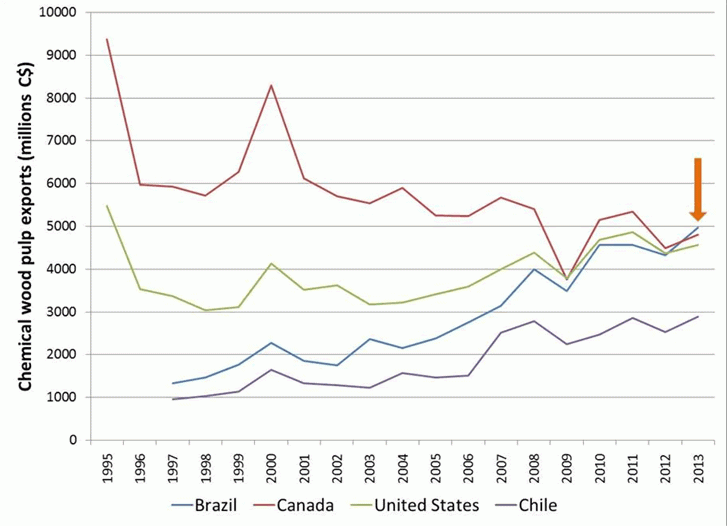Selective Cuttings
Brazil passes Canada to become the largest exporter of pulp
March 11, 2014
After decades of dominating global market pulp trade, Canada has finally been displaced as the world’s largest pulp exporter. Supported by an enormous base of eucalyptus plantations – the world’s largest at 1.8 million ha—Brazil has been increasing production of Bleached Eucalyptus Kraft (BEK) pulp since the late 90’s.
Chemical pulp exports from global leaders
Following many years of genetic improvement work, Brazil’s eucalyptus plantations have the world’s best growth rates, averaging about 40 m3 per hectare per year. In some cases, growth rates of 60 to 80 m3 can be achieved. Commercial harvesting often occurs after 5 years. By contrast, the Canadian pulp industry relies on fibre that often grows at a rate of 1 to 2 m3 per hectare per year with rotation ages closer to 90 years.
Thanks in large part to this incredible productivity, the Brazilian industry is the world’s lowest cost producer of bleached eucalyptus kraft pulp. Brazil currently produces 12.8 million tonnes of market chemical pulp per year and Canada 9.3 million. Brazil accounts for half of the forecast global capacity increases over the next two years, and will continue to increase export volumes.
Although Brazil’s position as export leader of kraft pulp in general is solidifying, Canada remains by far the largest world producer of northern bleached softwood kraft pulp (NBSK), which fetches a substantial price premium compared to BEK (currently as much as + 140 $/tonne).

